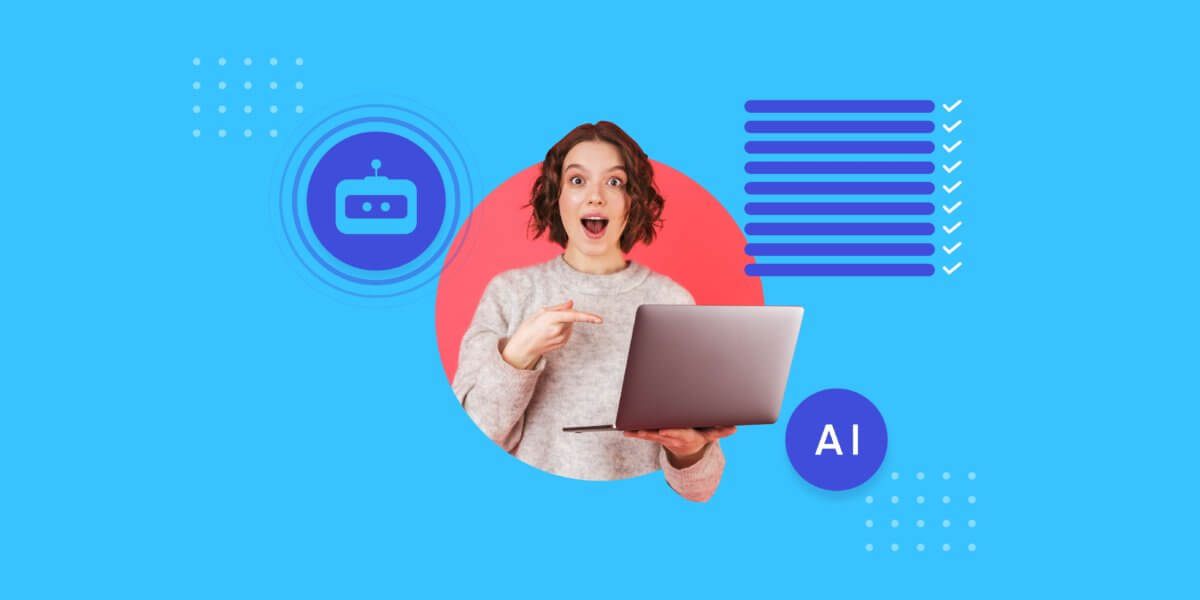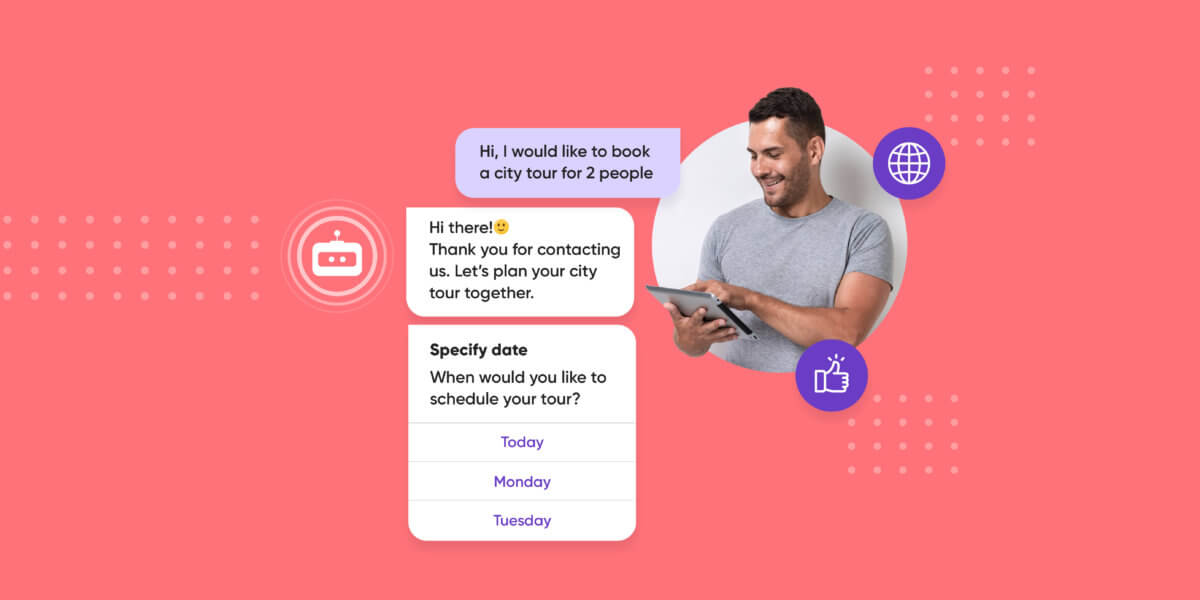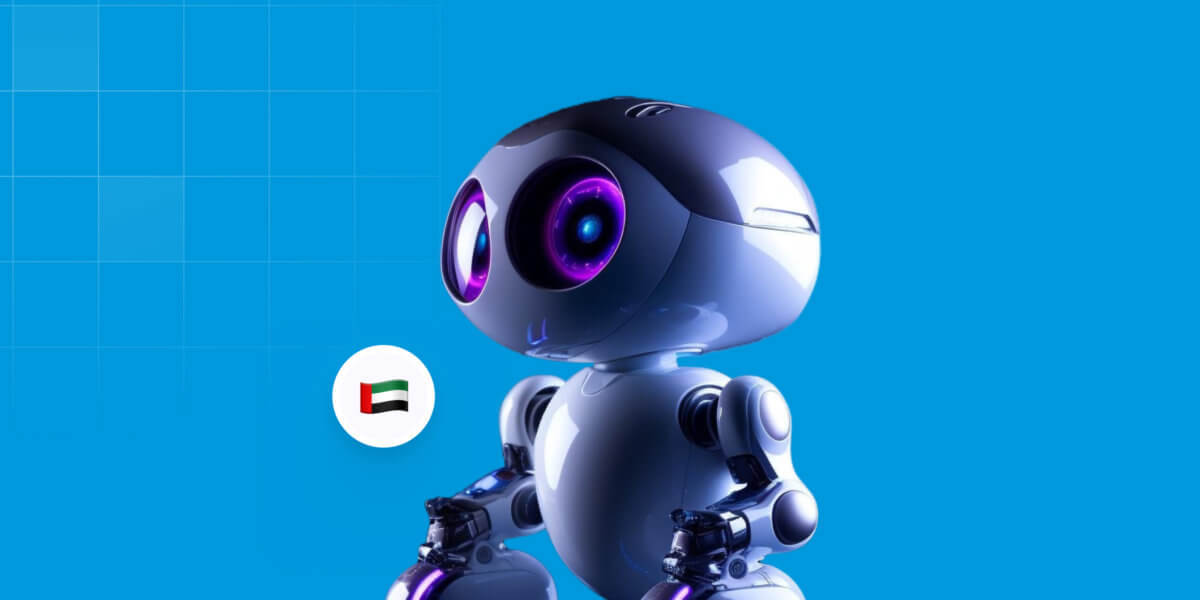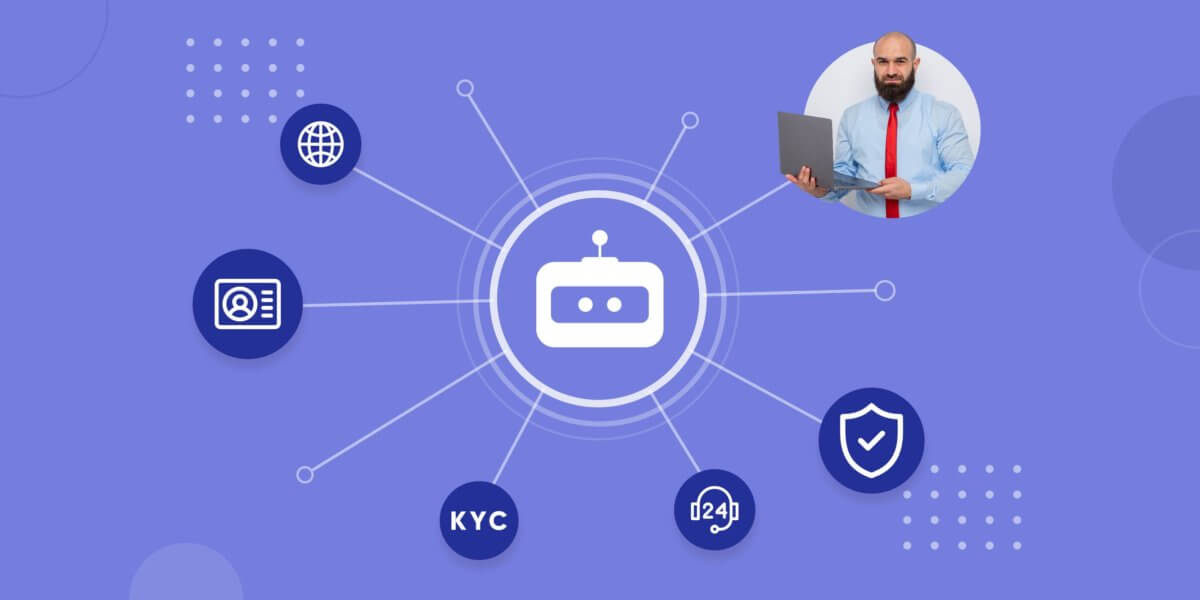10 Definitive AI Chatbot Trends and Predictions for 2025

10 Definitive AI Chatbot Trends and Predictions for 2025
We discuss 10 definitive AI chatbot trends, predictions and expectations for coming years. Dive in to find out the latest chatbot trends for 2025.
With the post-pandemic world flipping everyone over to the Internet’s side, AI has become a handy tool for many online businesses.
Today’s average chatbot is far more intelligent than its counterpart a year ago. This can be attributed to significant improvements in the four pillars of conversational engagement – Better NLU, NLG, NLP, and sentiment analysis.
The more chatbots interact with us, the better they’ll get.
So what can we expect in the coming years?
Table of Contents
- Chatbots will be more human
- The market will see more voice enabling
- More consumer-facing developments
- Companies will have more data
- More C-UX and job roles
- More chatbot apps
- More chatbot use cases
- More trust on paying through Chatbots
- More businesses save on operating costs
- Improved Regulation
1. Chatbots will be more human
An oft-used term to predict the future of Chatbots is “more human”. But what does it mean when experts say the future of chatbots will be more human?
“More human” is an umbrella term used to describe three technological advances in computational conversation.
Sentiment Analysis, Natural Language Processing, and Multilingual NLU will see major improvements.

- Sentiment analysis – Sentiment Analysis, also known as opinion mining, is the process of extracting and thereby determining the emotional tone of the words used. One of the primary methods by which humans analyse sentiment is by body language. Over text, humans use emojis.
- NLP – Recent advances in deep learning have meant that natural language processing has developed in leaps and bounds. One of the main ways computers analyse human text today is tokenisation, breaking up text into “tokens,” such as words. Using neural networks, computers can now take on word embeddings.
- Multilingual NLU – English is a common linguistic thread for most developed and developing countries. However, different cultures put their linguistic spin on it. From Spaniglish to Hinglish, these non-decipherable semantic distinctions are the next hurdle for chatbots.
Suggested Reading: Top 100 Chatbot Statistics
2. The market will see more voice enabling
Voice recognition has changed the way we search and shop. Consumer preference for the sector is relatively evident. Consider the following statistics.
There are over 100+ million Alexa-enabled devices on the market right now. The market is expected to grow further by 1000% per cent. 20% of all mobile queries on Google are now voice-enabled.
While Amazon’s Echo and Google Home are classified under “virtual assistant”, expect a push towards a middle ground this year.
Imagine a world where you’re in a cab on your way home. Simply text Alexa to turn up your central heating to prepare for you. Once you’re at home, you can say, “Hey Alexa, turn the temperature up by 2°C.”

Expect the functionality of chatbots to increase drastically. We can fully anticipate the icons on the bottom right of your screen to feature full voice functionality.
3. More consumer-facing developments
Chatbots are usually sold to companies, who use them to interact with consumers. This is called a ‘B2B Industry’ in the business world.
But Google’s Duplex demo broke those walls. It showed us that there are a lot of easily automatable interactions in our day-to-day lives.
Chatbots will be the next major element of technology democratization.
Chatbots will be the next central element of technology democratisation.
While they won’t be able to pick up your laundry (I, Robot style), I foresee a future where many people will have a personal chatbot that can handle mundane conversations.
Just like with the PC, advancements in technology and reductions in price will allow chatbots to be democratically distributed amongst the general public.
4. Companies will have more data
According to an IDC Digital Universe study, the amount of digital data created per year would be 35 zettabytes. (1 ZB = 1 billion TB)
As chatbots become a staple of businesses’ digital offerings, companies will start competing for the best strategies.
Chatbot’s growth statistics can give companies far more actionable insights.

Chatbot trends will be integrated into existing data architectures. Metrics like conversation duration and bot retention will be thrown around the same way webpage conversion and traffic are.
Chatbot Analytics can combine real-time conversations with historical precedence to give you deep and actionable insights.
The industry will move beyond simple data points like chokeholds or conversational hurdles to intent understanding and emotional output.
5. More C-UX and job roles
One of the latent changes that come with establishing a new industry is the emergence of new job roles and thought leaders.
Conversational User Experience (CUX) aims to create technology that seamlessly interacts with humans. CUX includes brand persona development, personalised content, and guided conversations.
Great UX reflects what customers need and what customers want.

As the goalpost for the ideal user experience changes, the people you hire to score those goals will change too.
The mass adoption of websites and apps moved the concentration of power from coders to designers. And as the conversation becomes an integral part of a user’s experience, new blood will enter the market.
Linguistic experts will determine how the system should respond to each question or request and design optimal conversational systems. The field’s primary purpose will be to help users reach their end goal quickly while delivering the best experience.
6. More chatbot apps
Chatbot apps have grown increasingly popular.
When we speak of mobile apps, Google and Apple both charge a 30% “store tax” for games released through their stores – for both the initial sale of apps, as well as any additional in-app purchases.
Apple and Google form a duopoly, by virtue of which they exert disproportionate power on the market. If you have a great idea for a mobile app or game, there is simply no other way to reach your audience.
I’m not going to say that apps will die out soon. That’s ludicrous. However, slowly but surely, the tides are changing.
Over 6 times! Over 6 times is what the global chatbot market will grow from 2016 through 2025 – Previously standing at $190 million to $1.25 billion in 2025!
As the app market becomes more saturated, it will make more and more sense for larger organisations to focus on AI-powered workflows for their business strategy.
7. More chatbot use cases
Chatbots are used in many industries. And as their capabilities and user adoption increase, expect that to grow.
Most notably, expect chatbots to increase in their scope of internal corporate use.
Take, for example, Human Resources. HR is one of the most essential internal factors in a company’s long-term success.

A sample of an HR bot using Verloop
While hiring often takes centre stage; your HR team is responsible for many other duties that directly influence your bottom line but aren’t as visible as hiring. These could include legal compliance systems, audits, conflict resolution, policy creation, streamlining, training and leadership development.
Research has found that between 40-50% of HR time is spent handling talent management and responding to internal queries and questions. This takes away from your team’s time, time that could be better spent on planning, strategising, recruiting and developing talent.
You can handle everything from employee query resolution to candidate qualification with an HR chatbot.
Suggested Reading: Chatbots: Applications, Use-cases & Templates
8. More trust on paying through chatbots
2020 and 2021 completely threw commerce online. Everything sort of became e-commerce as more businesses started setting up their online stores to ensure shopping remained as smooth for their customers.
Since more brands are shifting towards conversational automation and social commerce, their chatbots would evolve too. Many AI chatbot providers will come with robust payment integrations and gateways like Paypal, PayU, CCAvenue, Razorpay, Stripe, etc that will make conversions a lot easier for brands and users alike.
9. More businesses save on operating costs
The pandemic fuelled an unexpected increase in online purchases, which also caused an upsurge in the number of support tickets. Customer support can be expensive, with the number of users calling in increasing exponentially, but the number of support agents stays the same.
Businesses are using AI chatbots to keep up with the increase in call volumes. Juniper Research expects chatbots to contribute about $11 billion to cost savings annualy using AI-powered chatbot technology in banking, healthcare and retail sectors!
Chatbots can manage unlimited conversations simultaneously, unlike human chat agents, who can only converse with three customers simultaneously. As a result, a chatbot can be utilised to reduce labour costs, improve agent productivity and handle the majority of customer issues, with just the most complicated issues being forwarded to a human agent.
10. Improved Regulation
As chatbots become the new norm, expect legislation to catch up.
Given that chatbots need to horde data to improve their conversational capabilities, 2022 will present a year of stand-offs.
Security and data privacy will also become more and more relevant for big enterprises.
Google, Amazon, Microsoft all have their own version of bot builders. The three firms use their vast troves of actionable data to make their own products better.
Expect a conversation about letting these large players own their conversational data, for data mining and data collection. Also, expect more solutions with on-prem services for customers who’re concerned about their data.
What are the trends and predictions we expect from 2023?
2025 is expected to be a great year for the AI chatbot industry as these chatbot trends will drive adoption and innovation in the sector.
Chatbots are going to be more natural than ever with cutting-edge NLP algorithms with a robust dataset of interactions. The upcoming year might go down in history as the year when voice-enabled AI chatbots took the world by a pleasant storm making customer support more intuitive than ever before.
It will also create many jobs for coders, designers and data science professionals. As the industry continues to scale up, the number of developers in the ecosystem will also increase, allowing the technology to serve more use cases.
2025 brings a lot of promise with it for thousands of businesses that are looking to make their customer support systems more efficient. And it’s just the beginning of what’s about to come in the coming years!







